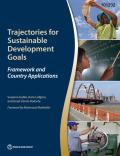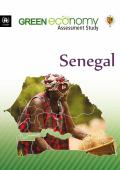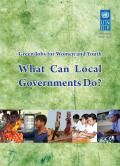
This report contains a fairly comprehensive analysis of the current situation of energy and gender issues in ECOWAS Member States. It outlines the fact that women continue to be excluded from the decision-making process concerning energy policy and also that their human rights continue to be compromised.
The aim of this report is to inform the development of the ECOWAS Policy for Gender Mainstreaming in Energy, which will support national governments in focusing and harmonizing their current efforts at gender mainstreaming, learning from one another, and collectively mobilizing support to achieve the SDGs and the objectives of the Sustainable Energy for All initiative.

In September 2015, the United Nations General Assembly adopted the 2030 Agenda for Sustainable Development and now individual countries face the challenge of implementing strategies that help realize the ambitions of this agenda, embodied in the Sustainable Development Goals (SDGs).
This book presents a Country Development Diagnostics Post-2015 framework, designed to assess country-level implications of the 2030 Agenda for Sustainable Development, and applications of the framework to ten countries. The framework helps policy makers identify policies that may accelerate progress on the SDGs, and analyze sources of fiscal space to finance additional spending. Current levels of SDGs and their determinants are benchmarked on the basis of country per capita income, making it possible to compare the focus country to other countries. On the basis of current prospects for income growth, the framework also projects likely SDG outcomes for 2030 in the absence of accelerated progress.


This paper presents examples of policies and programmes initiated by local governments that promote green jobs especially for women and youth. The aim is to inspire more local governments to consider policies that address the economic, social and environmental dimensions of sustainable development. The report includes case studies from South Africa, the Phillippines, Senegal, Bolivia, Argentina, Colombia, Bangladesh, Zimbabwe, Lesotho, Burundi and Viet Nam.
This report analyzes the experiences of countries that have undertaken reform of their fossil-fuel subsidies and establishes what lessons can be learned. It focuses in particular on France, Ghana and Senegal, as well as drawing from case studies of other countries and previous work that examines the reform of energy subsidies and price subsidies.
The study finds that, once in place, fossil-fuel subsidies are extremely difficult to remove. There is no single formula for success, and country circumstances and changing global conditions must be taken into account. However, strategies can be identified that contribute to successful reform and respond to individual country circumstances. This paper focuses on six important strategies that appear to improve the chances of lasting change:
